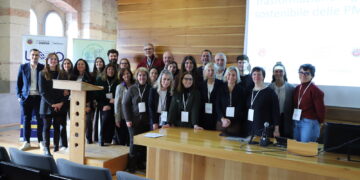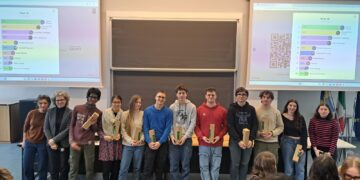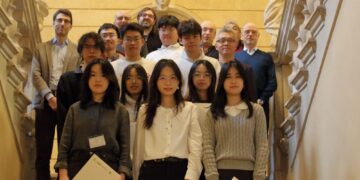An Italian-led research team comprised of ENEA (National Agency for New Technologies, Energy and Sustainable Economic Development), CREA (Council for Agricultural Research and Analysis of Agricultural Economics), and the Universities of Verona and Turin, has decoded the eggplant genome, opening up new opportunities for growing varieties that are more resistant to climate change and its consequences, such as drought. The study, published in the journal Scientific Reports by Nature, was conducted in collaboration with the University of Naples, the Weizmann Institute, and the University of California.
“Eggplants, like potatoes and tomatoes – whose genomes we sequenced in 2011 and 2012 respectively – belong to the Solanaceae family, which includes about 2,500 different species. Genome sequencing has confirmed that the great morphological diversity of the Solanaceae was generated by a very similar number of genes (about 35,000 in each of the three species). In addition to the most common variety of eggplant in Italy – the Solanum melongena – there are about fifty related species in the wild, some of which are at risk of extinction due to climate change,” says Giovanni Giuliano, research manager of the ENEA Biotechnology and Agro-industry Division.
“The eggplant whose genome was sequenced, called 67/3, was developed by CREA by crossing the Tunisian variety of the typically Italian Violetta eggplant with an Asian variety, to change the texture of the flesh which, being very soft, absorbs a lot of oil when cooked.
The progeny was then continuously selected for the following 6 years, until obtaining the variety 67/3, from which we were able to establish numerous related families, which allowed us to correctly order the genome sequences. This allowed us to understand the genetic basis of a number of important agronomic traits, accelerating genetic improvement programmes through molecular markers associated with the genes being analysed. In particular, we focused on genes involved in fruit colouring and ripening, and resistance to fungal pathogens,” adds Giuseppe Leonardo Rotino, research manager at CREA Genomics and Bionformatics.
“The genome was obtained through a combination of the latest sequencing and optical mapping technologies. The quality of data is very high and demonstrates how much the Italian expertise in the field of genomics has improved”, states Massimo Delledonne, Professor of Genetics at the Department of Biotechnology at the University of Verona.
“Eggplants are among the most widely consumed vegetables in the world, and Italy is the main European producer. Eggplants, which were first domesticated over 2,000 years ago in Asia, have suffered a genetic bottleneck that has reduced their biodiversity and resistance to disease and environmental stress. The decoding of the genome has already allowed us to start exploring the genetic pool of eggplants, and will contribute to overcoming these issues” explains Sergio Lanteri, Professor of Agricultural Genetics at the Department of Agricultural, Forestry and Food Sciences at the University of Turin.

























